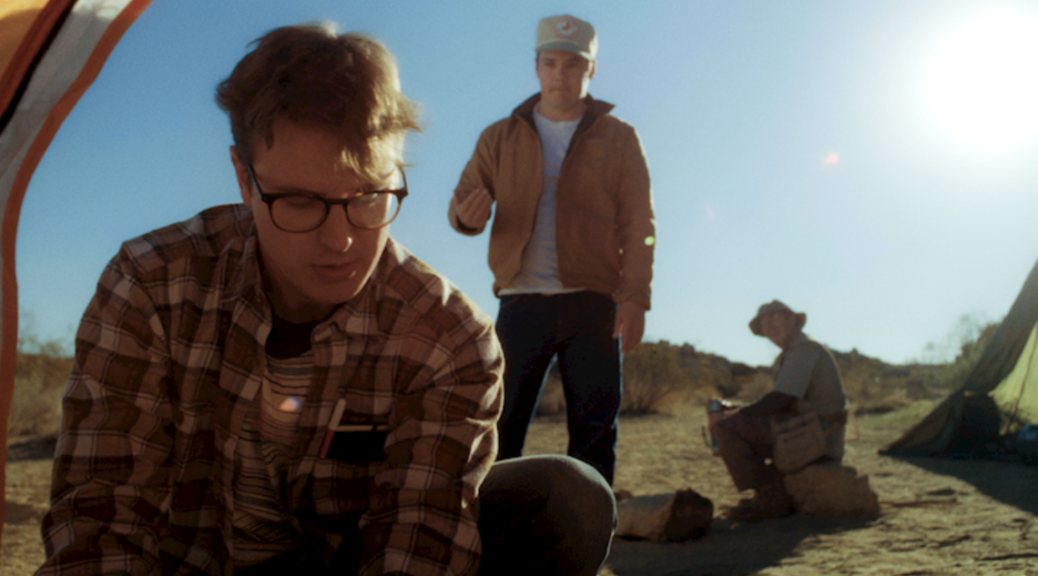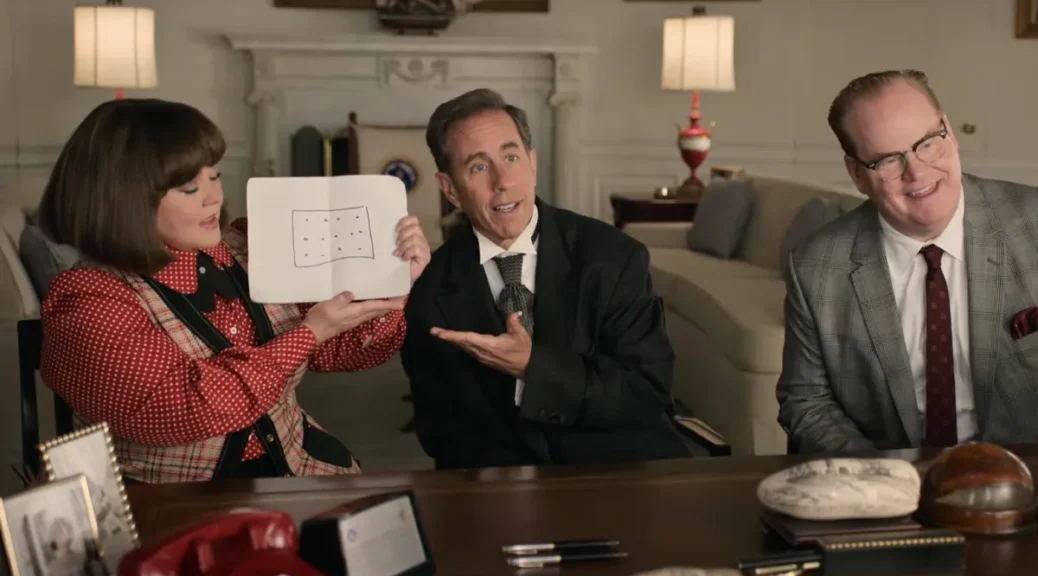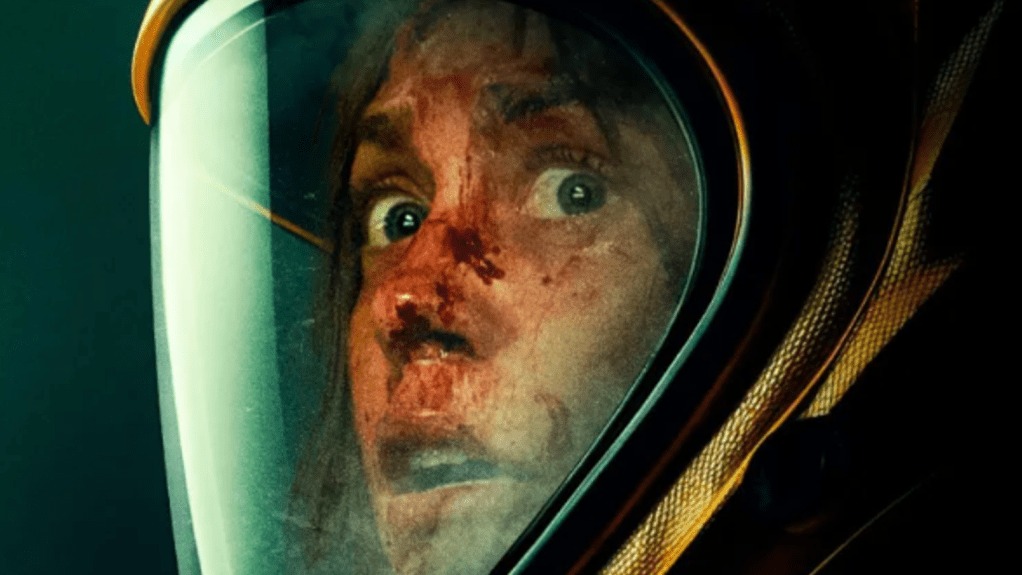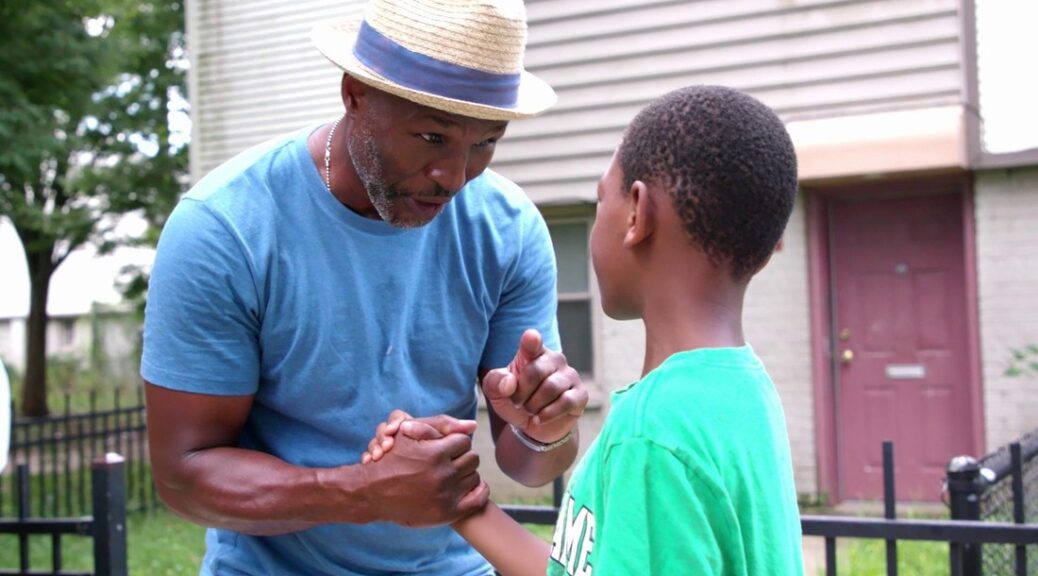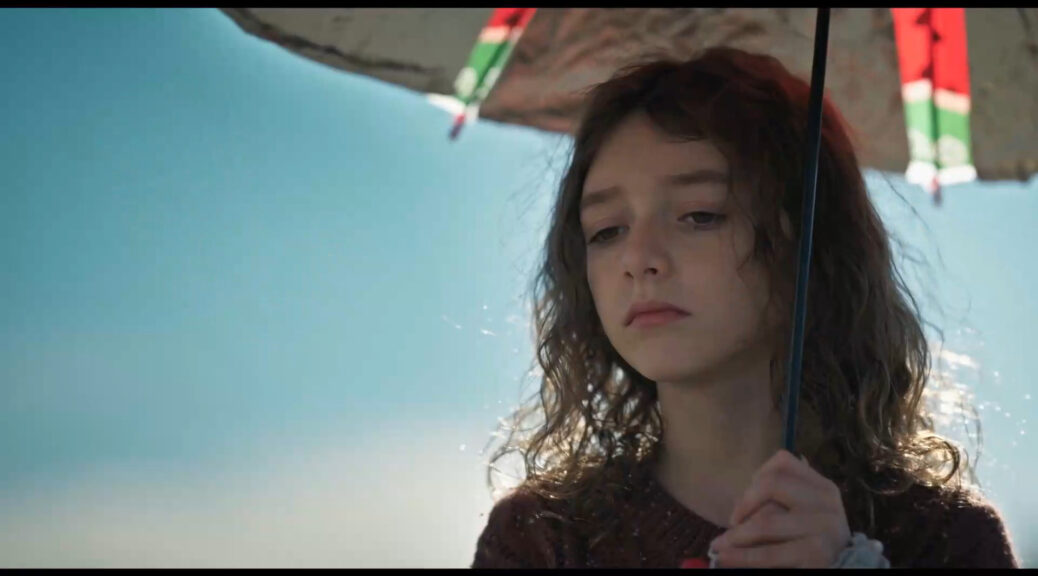Kingdom of the Planet of the Apes
by Hope Madden and George Wolf
Seven years after Matt Reeves wrapped up the solid Planet of the Apes trilogy with a thrilling, full-on war movie, director Wes Ball takes the reins for a new chapter with a relevant conscience.
“You take his name, but twist his words.”
The characters may be talking about Caesar, leader of the ape revolution, but the filmmakers are aiming higher.
After a quick update on the rise of the apes, Ball and screenwriter Josh Friedman settle in “many generations” after Caesar’s death.
Young ape Noa (Owen Teague) is part of a clan that bonds with eagles, cares for the balance of nature, and is careful not to stray to the “valley beyond.” But their peaceful existence is shattered when the masked warriors of Proximus (Kevin Durand) invade, on a violent mission to bring in the human named Mae (Freya Allan).
Proximus has anointed himself the new Caesar, and believes Mae is the key to opening a long dormant vault holding human secrets of higher evolution.
Ball (The Maze Runner trilogy) returns to the adventurous roots of the original Planet of the Apes from ’68, and then ups the ante on action, visual spectacle and moral obligation.
When Mae finds protection and friendship with Noa and the tender, learned Raka (Peter Macon), it sets off a journey that is drawn out but frequently thrilling. Visual effects are again often wonderfully evocative, teaming with Gyula Padros’s layered cinematography and some nifty editing from the Dirk Westervelt/Dan Zimmerman team for effective world building and satisfying set pieces.
This is a story evolution that feels right, even urgent. The series, from its start, exposes the evil and hypocrisy in the lust for power that threatens every civilization. The fight in Kingdom primarily pits the speaking apes against each other, but it feels more realistic than most of what has hit the screen this year.
None of the characters compel the same level of interest as Ceasar, though. Andy Serkis is missed, and with him, Reeves, who elevated the irresistible Ape-Pocalypse of 2011’s Rise of the Planet of the Apes to political theater of near-Shakespearean proportions.
But Kingdom is on the right track and Ball has crafted a next chapter that leaves us wanting to read on.


